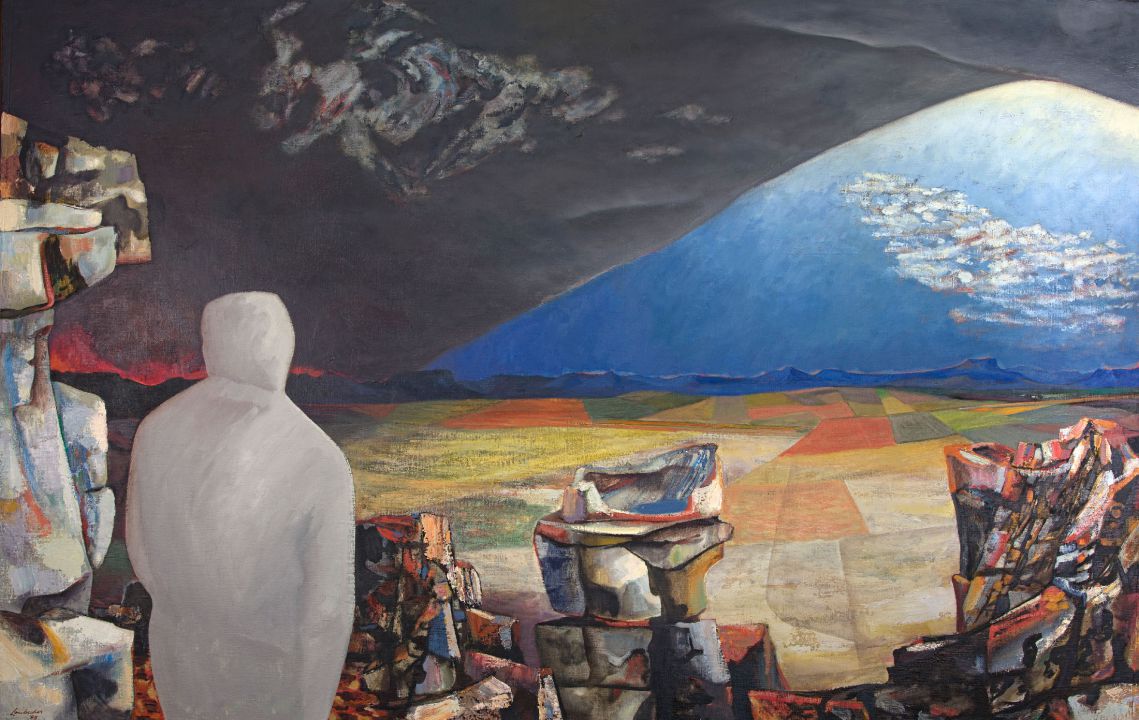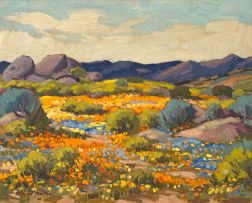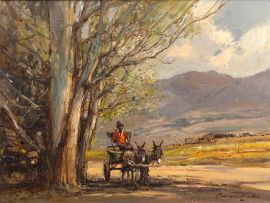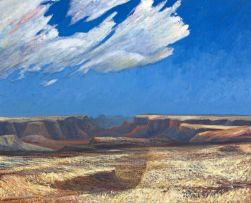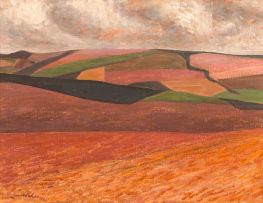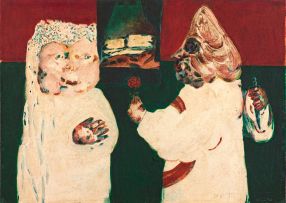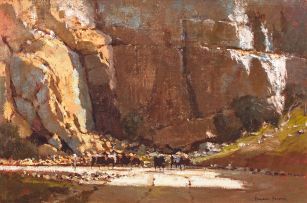Important South African & International Art, Decorative Arts & Jewellery
Live Auction, 10 October 2016
Important South African & International Art
Incl. Buyer's Premium & VAT
About this Item
signed and dated '88
Notes
After completing his art studies in London and Paris, Erik Laubscher settled in Cape Town where he would become a prominent and much-loved member of the art community. Walter Battiss, then an influential critic and member of the New Group of painters, was an early praise singer. In 1952 he wrote in a London periodical: "Cape Town is still the home of Impressionism, but the new and compelling work of Erik Laubscher ... at a recent Art Club exhibition is a challenge to stale ideas in the Cape".1 He also praised Laubscher's ability to "paint big canvases with satisfying assurance". This captivating oil, painted 36 years after Battiss singled out Laubscher for praise, demonstrates the endurance of his great technical skills. The painting reimagines a vista in the Koue Bokkeveld, a sandstone mountain range north of Ceres that Laubscher visited with his wife, painter Claude Bouscharain, and close friend, painter Stanley Pinker. In 2014 Strauss & Co sold Pinker's Camping in the Kouebokkeveld (1985). Contemplation forms part of a series of monumental landscape paintings in which Laubscher negotiates description and metaphorical statement. Common to all these paintings is Laubscher's cubistic treatment of his geological forms, tilled landscapes and wispy clouds. Contemplation is nonetheless unusual for the figure in the left foreground. Various writers have commented on the absence of human figures in Laubscher's landscapes. "He does not need to paint a human figure to say what he has to say," offered a critic in 1988 when Laubscher showed at the Association of Art Gallery.2 Stephen Gray, writing about Laubscher in 1978, argued a similar line. Hans Fransen, Laubscher's biographer, addresses this issue: "In 1987 [Laubscher] did produce a rare painting with a human figure, seen from the back, in outline only, and used as a repoussoir, staring into the dramatic Koue Bokkeveld landscape. The figure seems to be pondering the contrast between the aggressive rock formations and the softly undulating shapes of the fertile landscape in the distance, which suggests a sort of promised land."3 This reading overlooks the flames sweeping in from left, and the vast grey cloud filling in the sky. Pinker also produced a similarly ambivalent landscape marked by plenitude and destruction by fire. Fire is a natural and essential ecological process in most of Western Cape. It is a prelude to renewal.
- Walter Battiss. (1952) 'New Art and Old Art in South Africa', The Studio, Vol. 144. Page 70.
- Hans Fransen. (2009) Erik Laubscher: A Life in Art, Cape Town: SMAC. Page 188.
- Ibid., Page 188.
Literature
Hans Fransen. (2009) Erik Laubscher, A Life in Art, Stellenbosch: SMAC Art Gallery. Illustrated in colour on pages 194-195.
